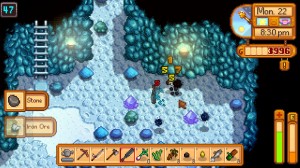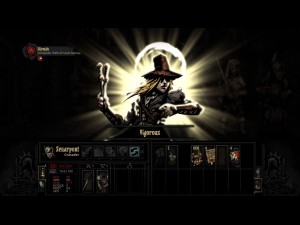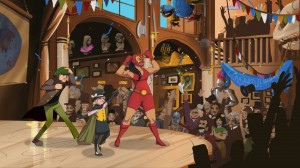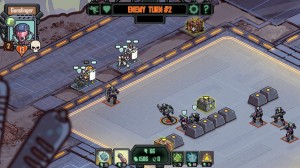Over the years I’ve had the luck to speak to developers across the spectrum in terms of success. From those who just released their very first commercial game, to experts with decades of experience working in the industry. Their success in the industry is just as varied, and I had to talk to people about how the last two to three years of their life produced a game that no one wanted to play.
Everyone wants to talk about the big successes, underdog wins, and game changers, but rarely do we hear about the failures. For today’s post, it’s time for another sobering talk about the quickest way new developers fail in the Game Industry.
The Business of Games:
The Video Game Industry is one of the most creative places to work in the world, and that has been a major pull for new people. The success of video games breaking through to pop culture last decade has been huge in legitimizing the work and creativity of our industry.
In today’s world, you can literally take a group of people who never have to be in the same room, or even the same continent, and work on a game together. The point is this: Making a Video Game can be a fun, fulfilling experience.
However, too often people will forget that to be successful in the Game Industry requires understanding more than just game design. Game Development at the end of the day is a business, and a business has to be treated differently.
It’s too common for people to think that the successes of games like Darkest Dungeon, Stardew Valley, or Cuphead happened in a vacuum. That the developers didn’t do anything but make a video game and it succeeded. Speaking with Chris and Tyler from Redhook several times, they have talked about how much work went into growing awareness for Darkest Dungeon.
One of the oldest adages that apply here is that money changes things. There are a lot of ways we can take that statement when it comes to game development.
There is a big difference between a project worked on during your spare time and managing a 200k+ budget earned from Kickstarter. Game Design may be an art, but running a game studio is a business.
With that said, it’s time to turn to several phrases that perfectly sum up the problem of not treating game development as a business.
“I’m an Artist, Man.”
Chances are if you talk to any game developer, they didn’t get into the Game Industry because they wanted to mail out press releases. Game Development is an artistic medium; whether we’re talking about from a design or story perspective.
With that said, it also attracts a fair number of people who hate the hustle and bustle of a normal 9 to 5 job. No one is saying that you must wear a suit and tie all day, but that doesn’t mean you can ignore the rest of what it means to work in the game industry. This includes, and is not limited to:
- Handling PR
- Getting people to play test your game
- Reaching out on social media
- Organizing the development of your game
- Making it easy for people to find you
I’ve heard it before from first-time developers that say, “I just want to focus on my game.” In today’s market, you can’t do that. It doesn’t matter how good your game is if no one knows it exists.
This phrase also applies to the “rock star” mentality. The people who believe that they are the greatest designer/programmer/artist, and how dare you question their decisions. Even if that person is literally building the entire game themselves, someone still needs to be overseeing things.
“We’re all Best Friends”
Going back to the money point for a second, this is a problem that usually doesn’t appear right away. If you’re trying to build a successful company it’s important to cover your bases in terms of ownership. At the start, I’m sure everyone loves working with each other, but things can certainly change.
The second you start thinking about forming a studio, you should consult a lawyer regarding contracts and making it legal. There are a lot of aspects of running a company that a first time, or even an established developer may not understand, and it’s crucial if you’re planning on growing to keep these details in mind.
“Just Make Video Games”
If you’re a long-time reader or watcher of me, you know how much I hate this expression. Ten years ago when the indie market wasn’t realized yet, this could have been practical advice; today, not so much. As we’ve talked about, there is a massive difference between making video games as a hobby and doing it as a profession.
There are more skills related to being successful in game development than just design, programming, and art. The topics I mentioned further up are just a sampling of what’s needed to be successful.
The sad part is that I’ve seen amazing games come from small studios that still ended up causing the studio to go under. Let me say this again encase anyone didn’t get the point: A good game is not enough anymore to succeed.
And while you can prototype games as many times as you want, it’s still important to learn how to tell a good game idea from a bad one. At some point we need to have a chat about this topic, but this piece is already starting to get long, and we have one more phrase to go.
“My Game Will be Perfect”
Finally, it’s time to talk about the obsession of the “Dream Game.” This may sound like a contradiction: Building a successful studio is about reaching as wide of an audience as possible, but you still need to focus on who your game is aimed for.
We can take that statement apart from both extremes. First, there are designers who only focus on a game for them, and maybe a group of friends.
When you’re working on a video game for months or even years, it’s easy to forget that there will be other people looking at your game. The echo chamber effect of only listening to your supporters is real. At this point, we could even talk about having social and communication skills when it comes to taking criticism. Sadly, we have seen cases of developers melting down on Twitter or forums and causing a PR nightmare for themselves and their studio.
From the other extreme, we have people chasing the dream of making the ultimate game — The game that everyone will love and be a game of the year winner and earn them all the money they would ever need.
Just as you can go overboard with too limited of an audience, you can go too extreme with trying to reach everyone. We have seen this many times in the past — Where after getting some praise on a game concept or previous game, the developer will go “all in” to make their game as big as possible. Games that have four+ year development cycles are a symptom of this.
This next point should be obvious to everyone, but it needs to be said — The longer you work on a game, the harder it will be to break even. And one of the surefire ways to balloon a game’s development is to not have a plan for development.
I’ve spoken to developers before about the challenge of knowing how much to bend when it comes to listening to your audience. While it is important to keep an open mind, you still have to understand what is the core gameplay loop of your title.
Another phrase I’ve said before: A game that appeals to everyone is a game that appeals to no one. This is why it’s important to have a solid plan in terms of what your game is going to be about. A big red flag is when an entire game project has to be changed one or several times.
There is no exact science to making a video game, but that doesn’t mean you can’t take steps to mitigate potential problems. The more game projects you can finish, the easier it will become to understand the process of design.
One last point, while you may not want to hear this, there may come a time when you must scuttle a game project or part of a design. Just as it is important to understand what works, you also need to understand when it’s time to stop chasing something that isn’t working.
A Living Making Games:
We could certainly talk about this more, but at the end of the day it all comes back to how soon do you start taking things seriously as a game developer. Being able to have a career in the Game Industry requires dodging a lot of problems; some you can see coming, and others you won’t.
People who last in this industry learn that it’s not a mile a minute joyride to make video games, but something that requires time, planning, and understanding more than just what makes a great video game.






